Submitted by WA Contents
Casa Umbral features a brick-lattice façade that scatters soft light into the interior in Madrid
Spain Architecture News - Mar 31, 2025 - 05:14 2320 views
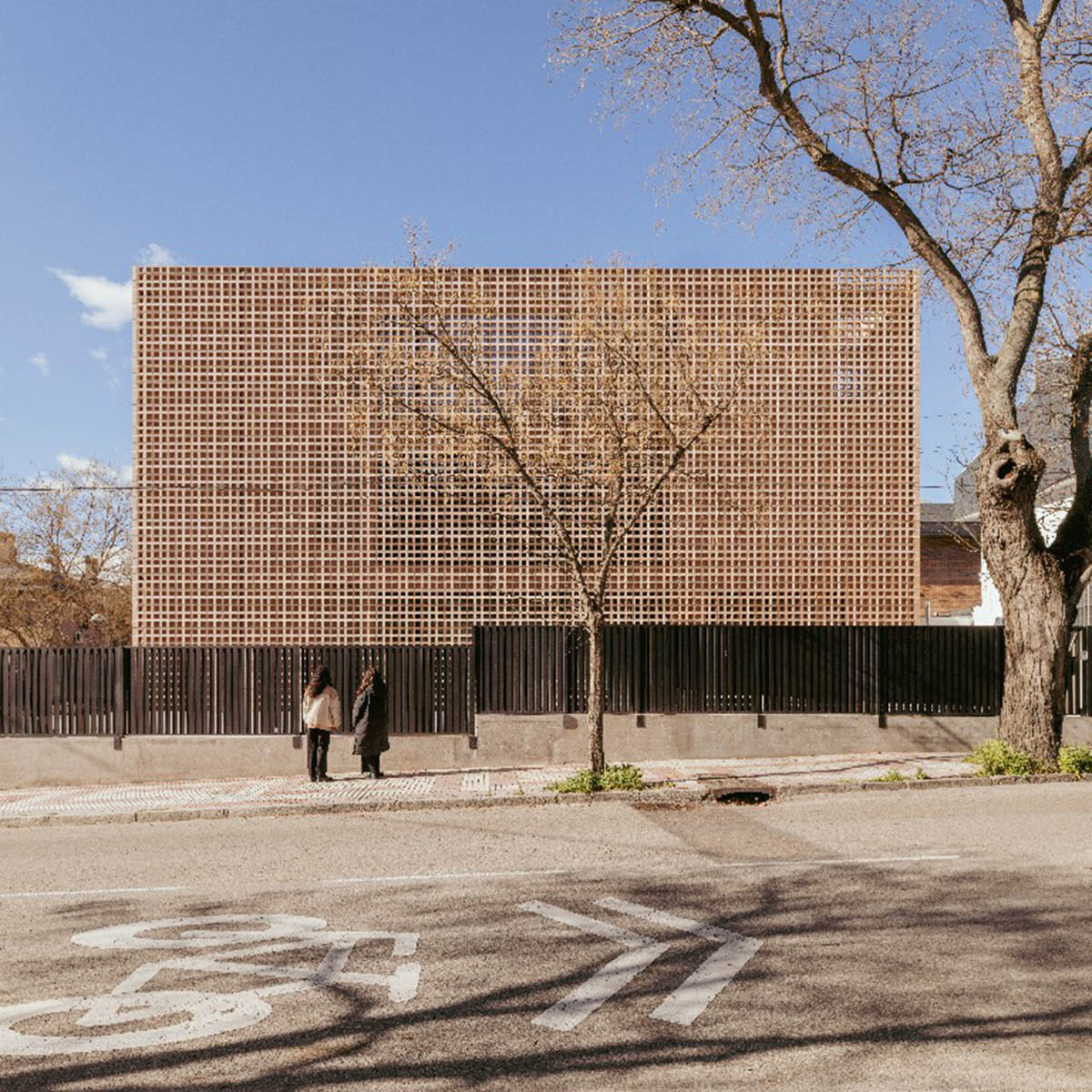
Madrid-based architecture studio ARQUID has completed a single-family house located in the northeastern district of Madrid, Spain.
Named Casa Umbral, the 769-square-metre house serves as a tranquil haven, featuring a distinctive ceramic facade that provides effective protection against external noise and disruptions. The overall mass is carefully crafted based on a series of openings and volumes.
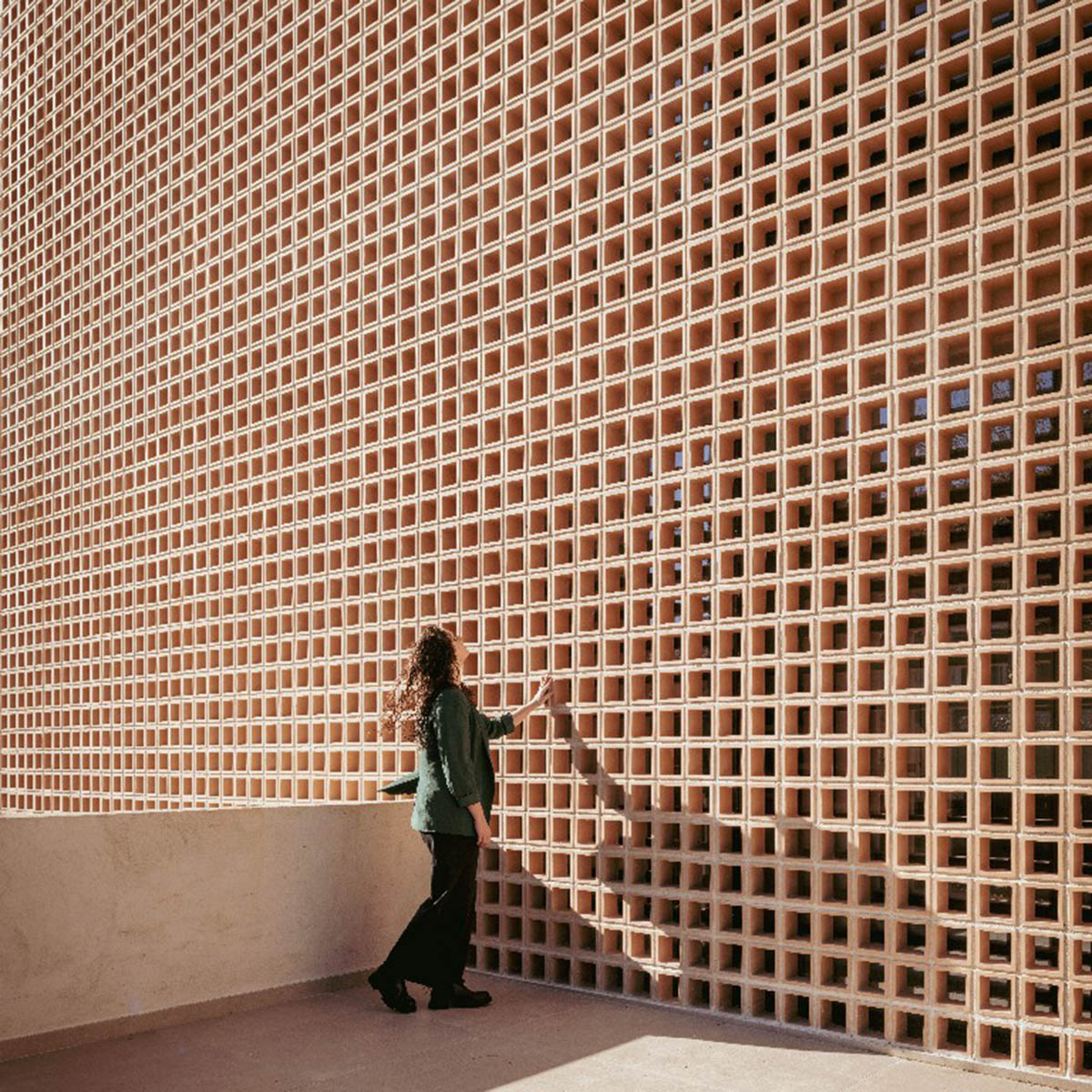
By integrating design and technology, clear boundaries and relationships are established between interior and exterior spaces, shaping the project into a dynamic, three-dimensional structure.
Casa Umbral represents a perfect blend of innovation, functionality, and sustainability in architectural design, offering its inhabitants an exceptional living experience.
The design of the single-family home’s structural layout embraces the family’s lifestyle and daily routines, with the main objective of creating a tranquil environment and calm spaces. Exclusively designated for daily activities, the ground floor houses the kitchen, office, and living room, all of which are easily accessible.
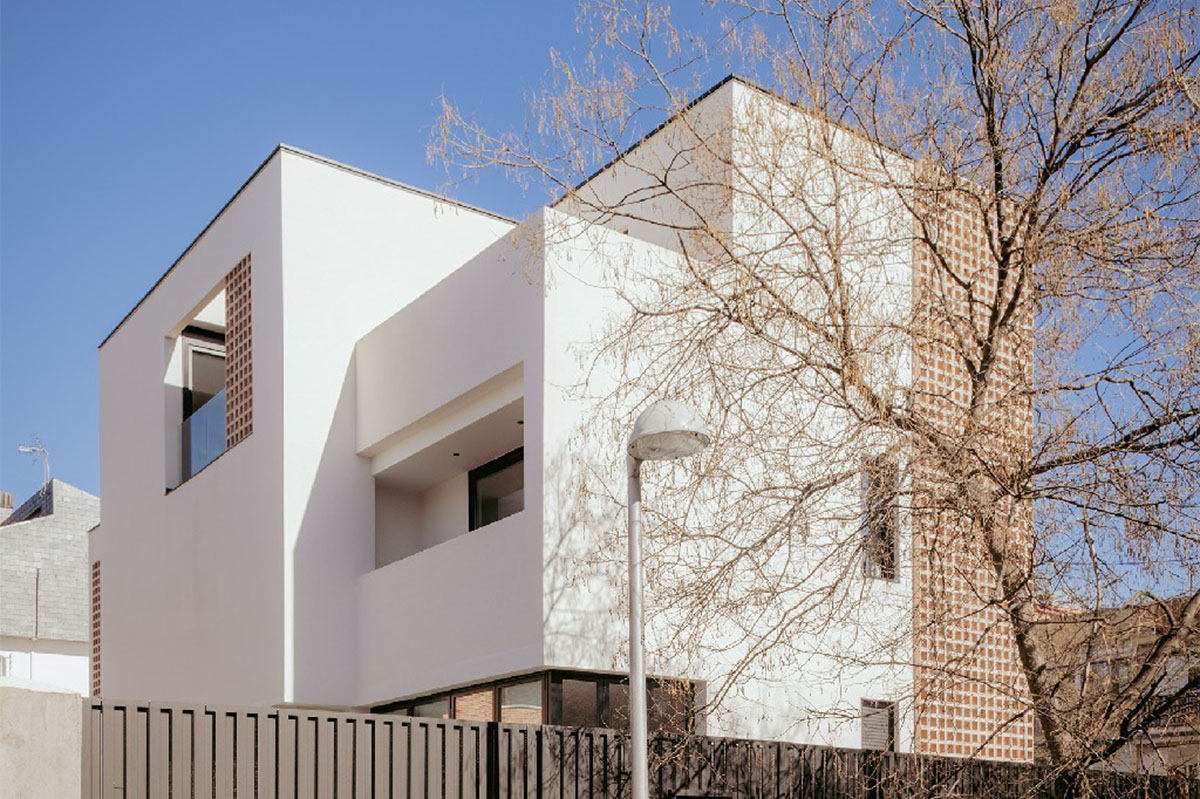
The upper level houses more personal spaces, including the bedrooms. This planning arrangement acts as a buffer for noise and privacy as you ascend. Large windows on the ground floor provide views of and access to the private garden.
The house consists of four volumes: one faces the main street, while the other three are positioned at the back, overlooking the garden. Inside, this volumetric arrangement is mirrored through the incorporation of custom enclosures that link the primary areas.
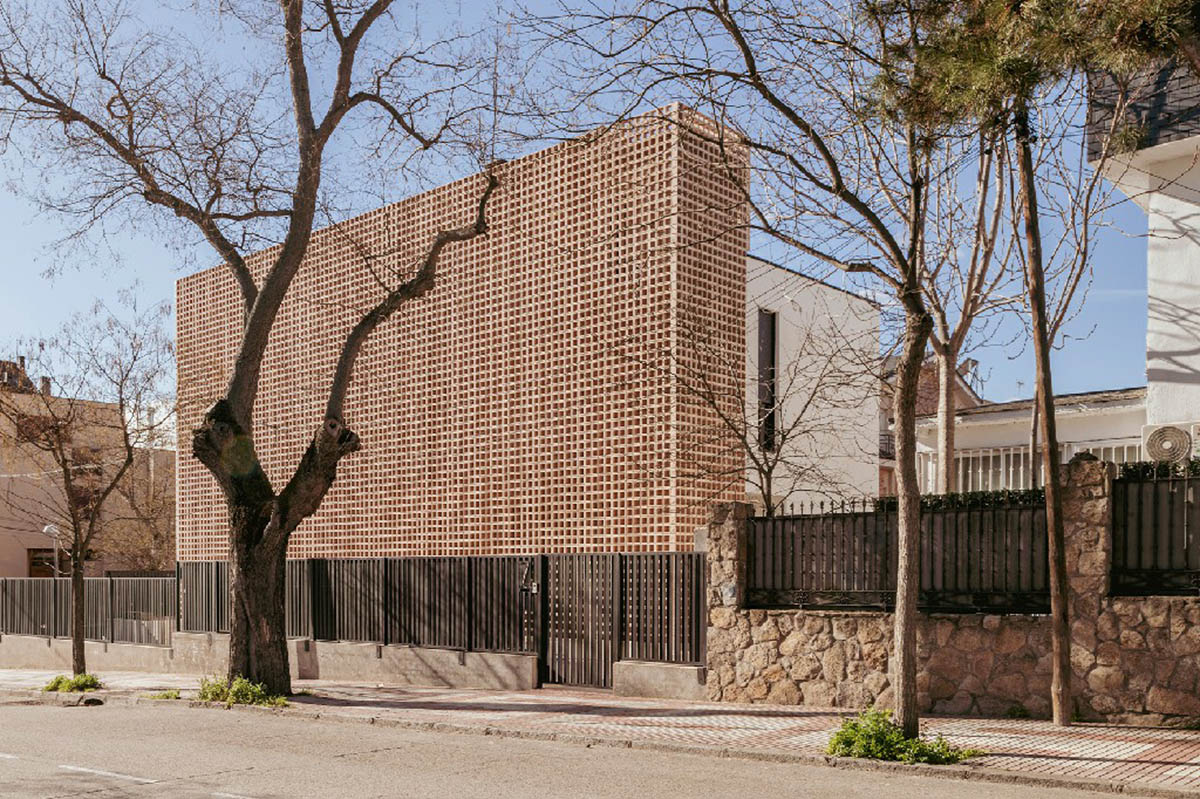
Brick-lattice facade
Made from simple ceramic elements in a terracotta hue to form an elegant and reticular latticework. Modestly covering the interior glass enclosures, it also showcases the two terraces on the upper floor, as desired. Utilizing a criss-cross technology that optimizes privacy while allowing for sunlight and views.
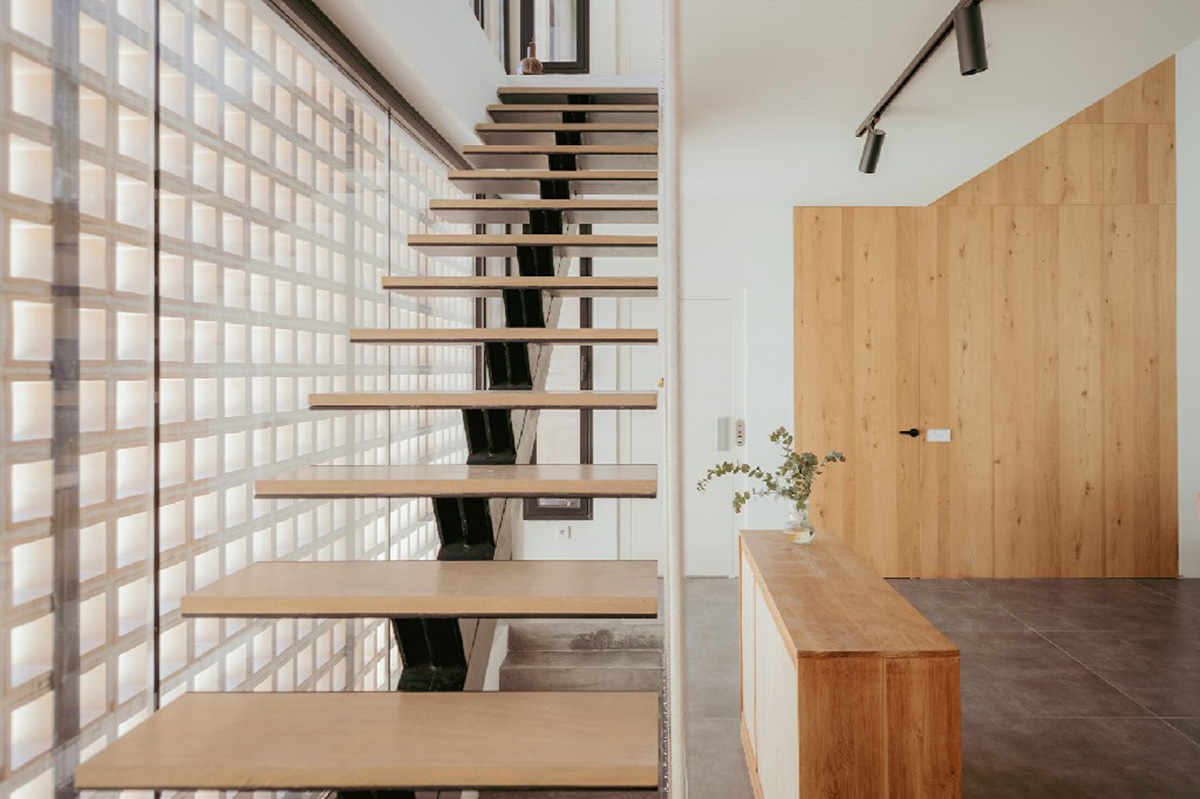
Material properties that benefit this project
An essential element of the design is its role as a secondary skin; it has been designed to support itself and to be reinforced. The ceramic facade features a modular design that creates an intriguing visual effect, a captivating play of shadows, and the diffusion of gentle light throughout the interior.
This project employs a brick lattice that provides numerous functional benefits, such as improved acoustics, ventilation, and airflow—especially crucial in an area characterized by mainly hot weather. Since this method requires fewer materials than conventional solid walls, it allows for flexible design configurations at a lower cost.
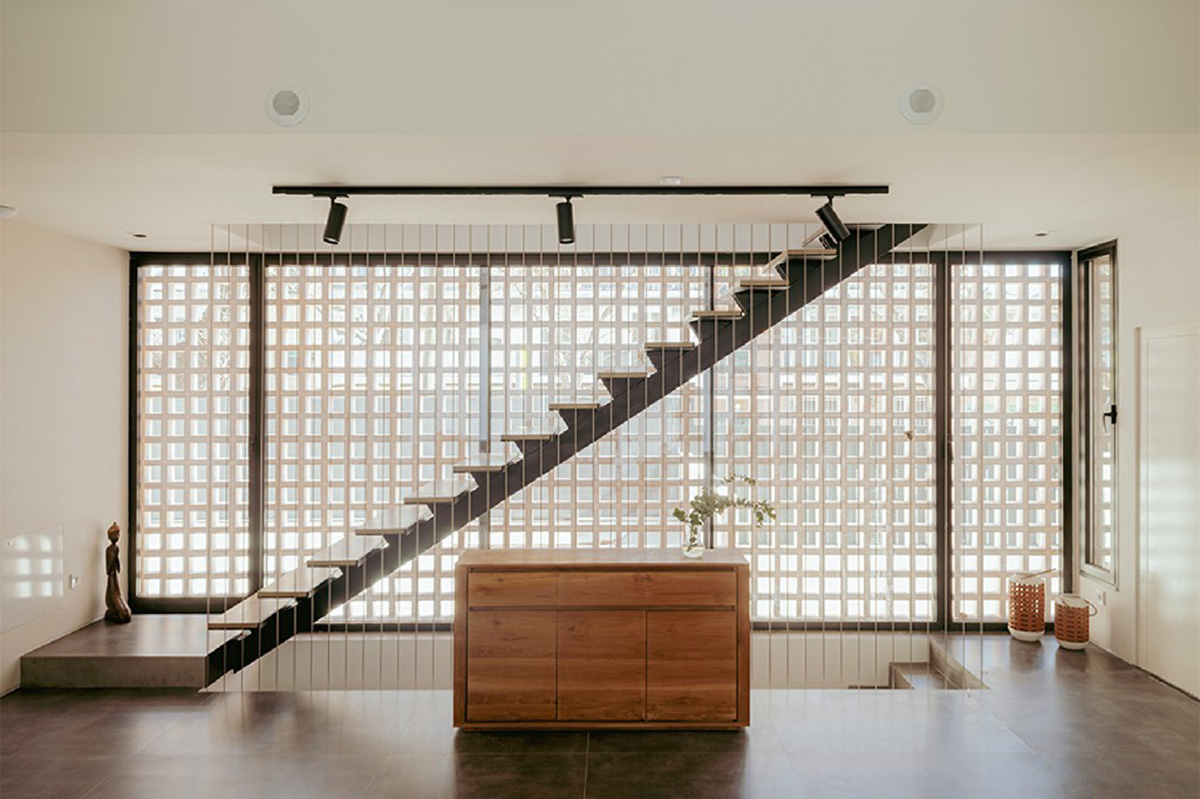
As its name suggests, Casa Umbral serves as a transitional space amidst the vibrancy of urban life. By enabling passive management of the indoor climate, the selected materials enhance the energy efficiency of the structure while fostering a conversation between modernity and tradition.
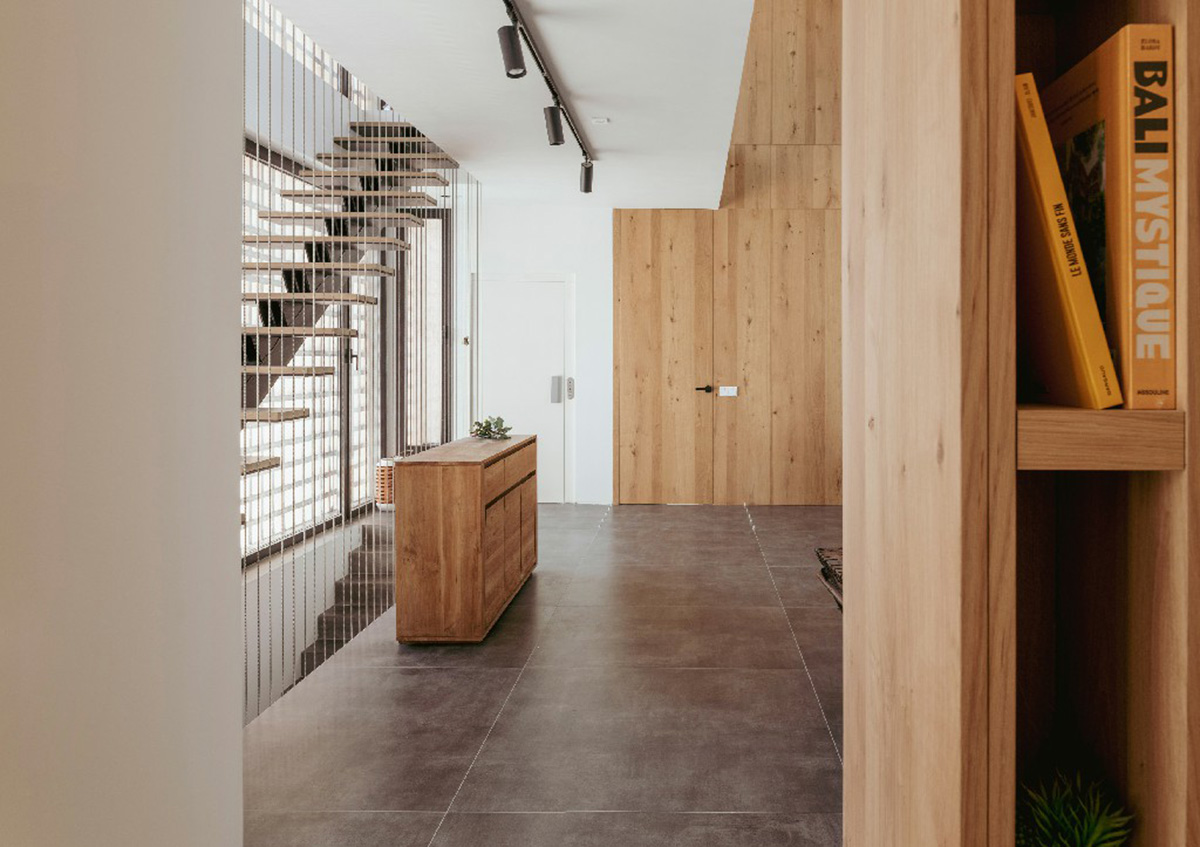
Interiors: Spatial balance
The exterior wall influences the arrangement of the interior by functioning as a key element of the built-in furniture, thereby dividing and linking the primary living areas.
This arrangement creates intimate, secluded areas within the building, enhancing comfort for occupants by keeping them private from the public road.
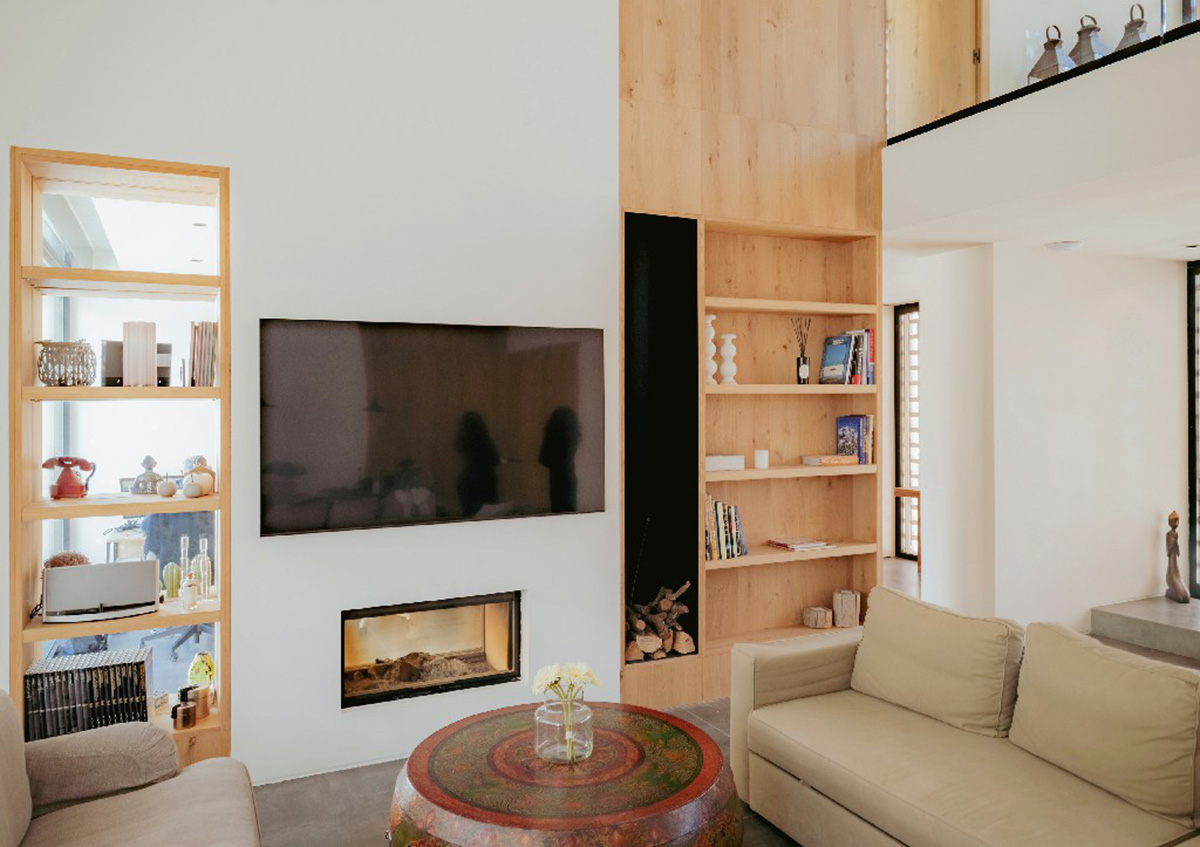
The house’s interior design enhances the link to nature outside and maximizes functionality. The main living space, dining area, and kitchen are integrated with an open layout.
With large windows, the building can be illuminated by natural light from every direction, and it boasts garden views that can be described as panoramic.
The corridor connects various facilities and is primarily located on one side across all floors, facilitating navigation and optimizing the efficient use of space in other areas.
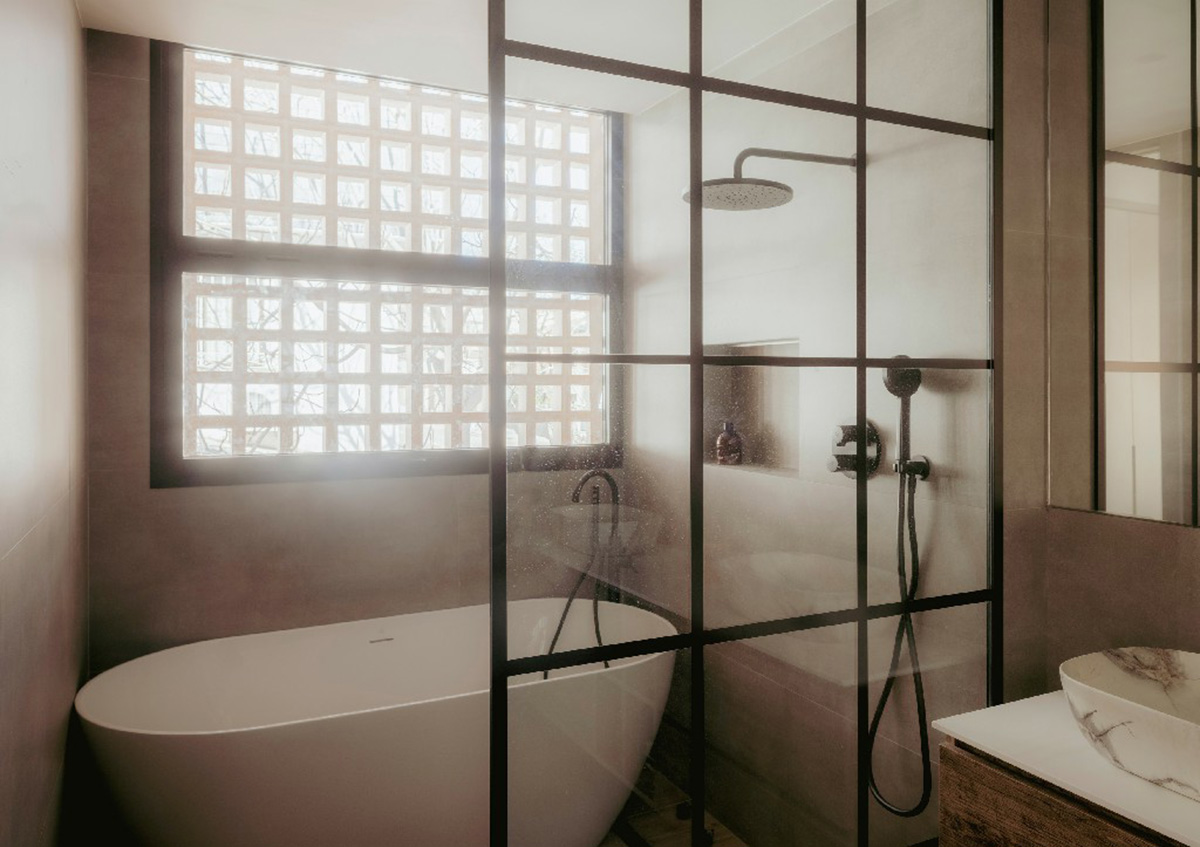
Using soft-finish wood for interior features like doors strikes a balance between modern aesthetics and the allure of the natural environment. The area gains definition and warmth from these materials.
This generates an atmosphere that is welcoming and snug—perfect for a family home—together with the light colour schemes and conventional finishes.
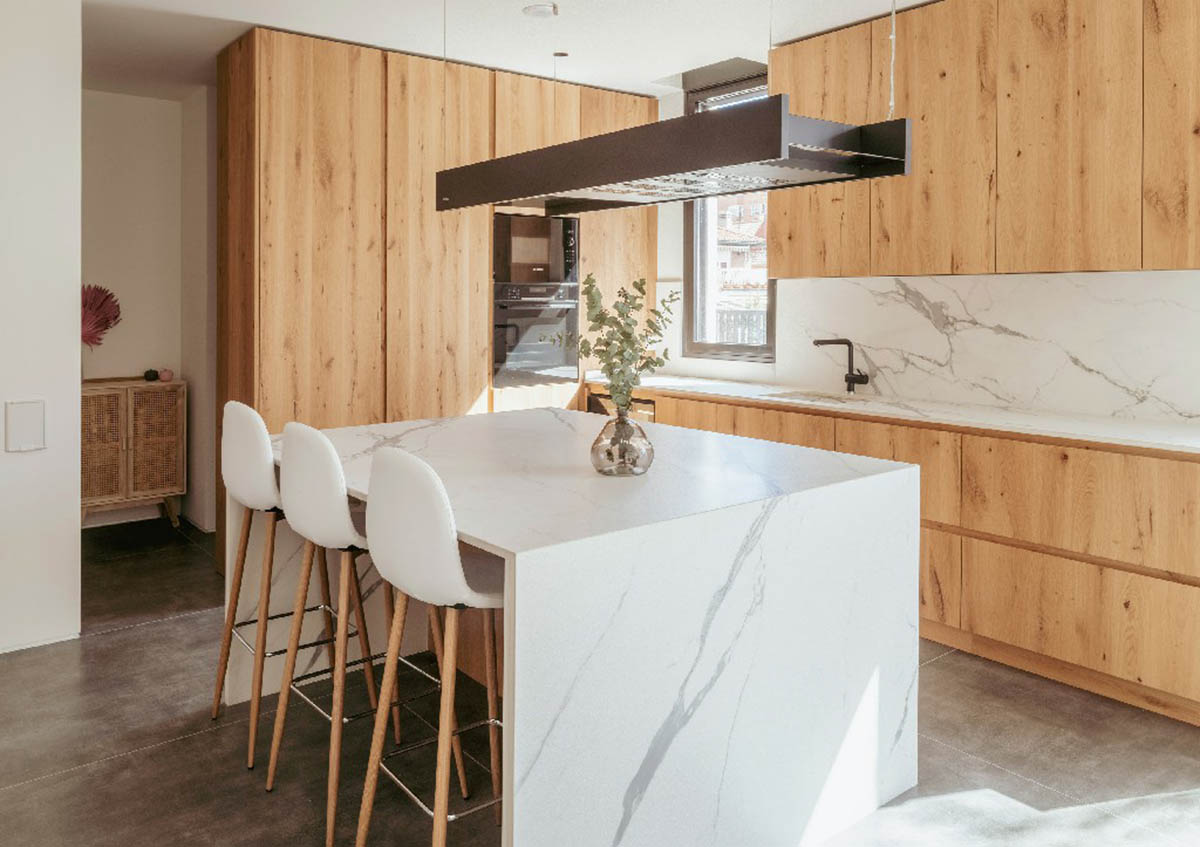
Eco-conscious architecture
"This project applies advanced eco-conscious design strategies. The main facade, serves as a sustainable strategy for passive lighting, contributing to energy savings," said ARQUID.
"All of the building's corridors are vertically aligned, allowing natural light to flow freely through all levels, further enhancing the lighting input."
"In addition, the façade criss-cross pattern may promote vegetation expansion in the patios and terraces. These design interventions, enhance the indoor ambience and encourage eco-conscious practices, promoting air purification, and improving indoor air quality," the firm added.
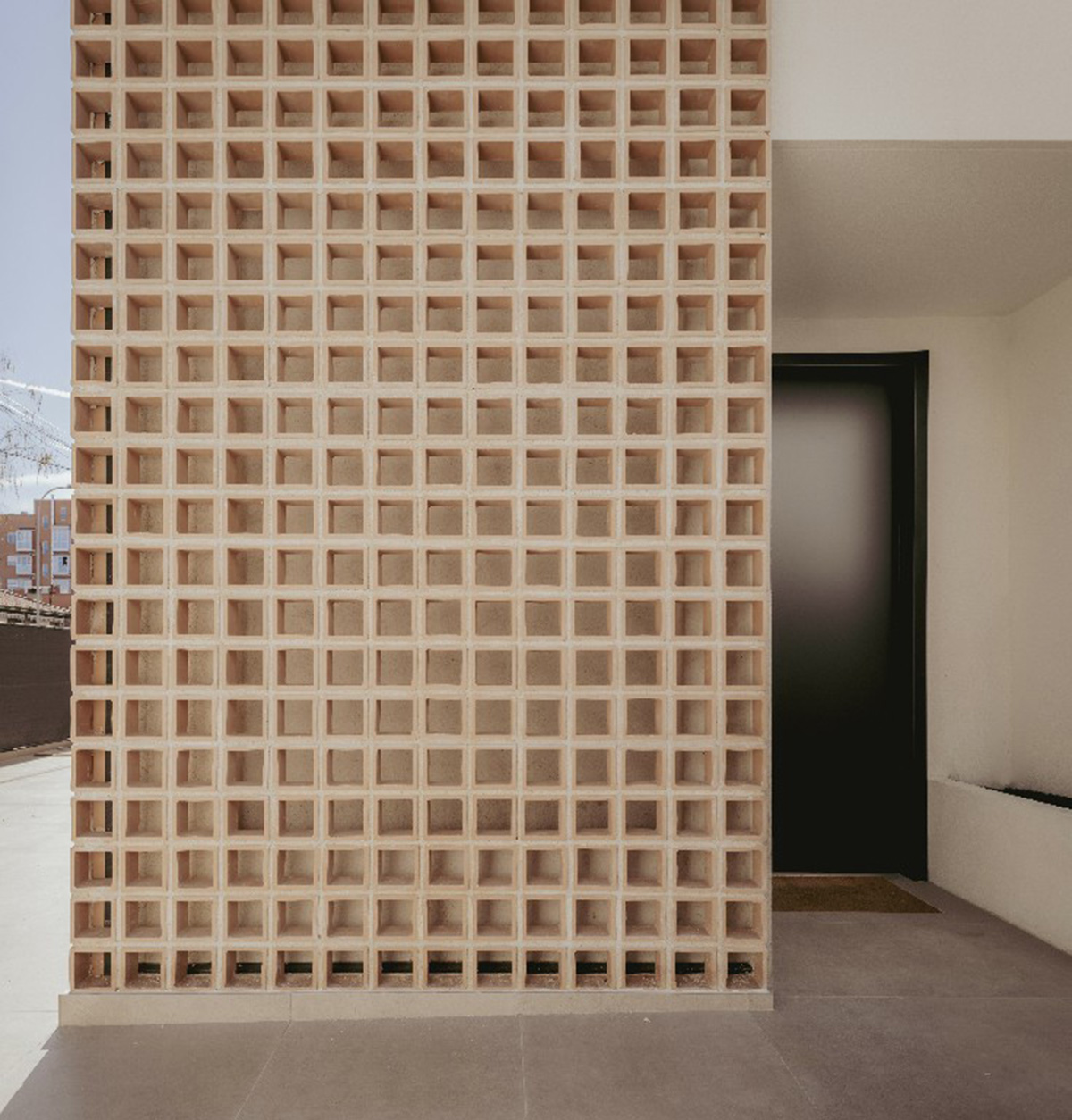
To provide efficient heating and cooling, a geothermal system has been installed for air conditioning, utilizing energy from below the surface.
Moreover, arrangements have been made for the future installation of photovoltaic panels, which will produce solar energy and contribute to a further reduction in the home's energy consumption. Another component is an electric vehicle charger installed in the garage, which eases the shift to more sustainable mobility.
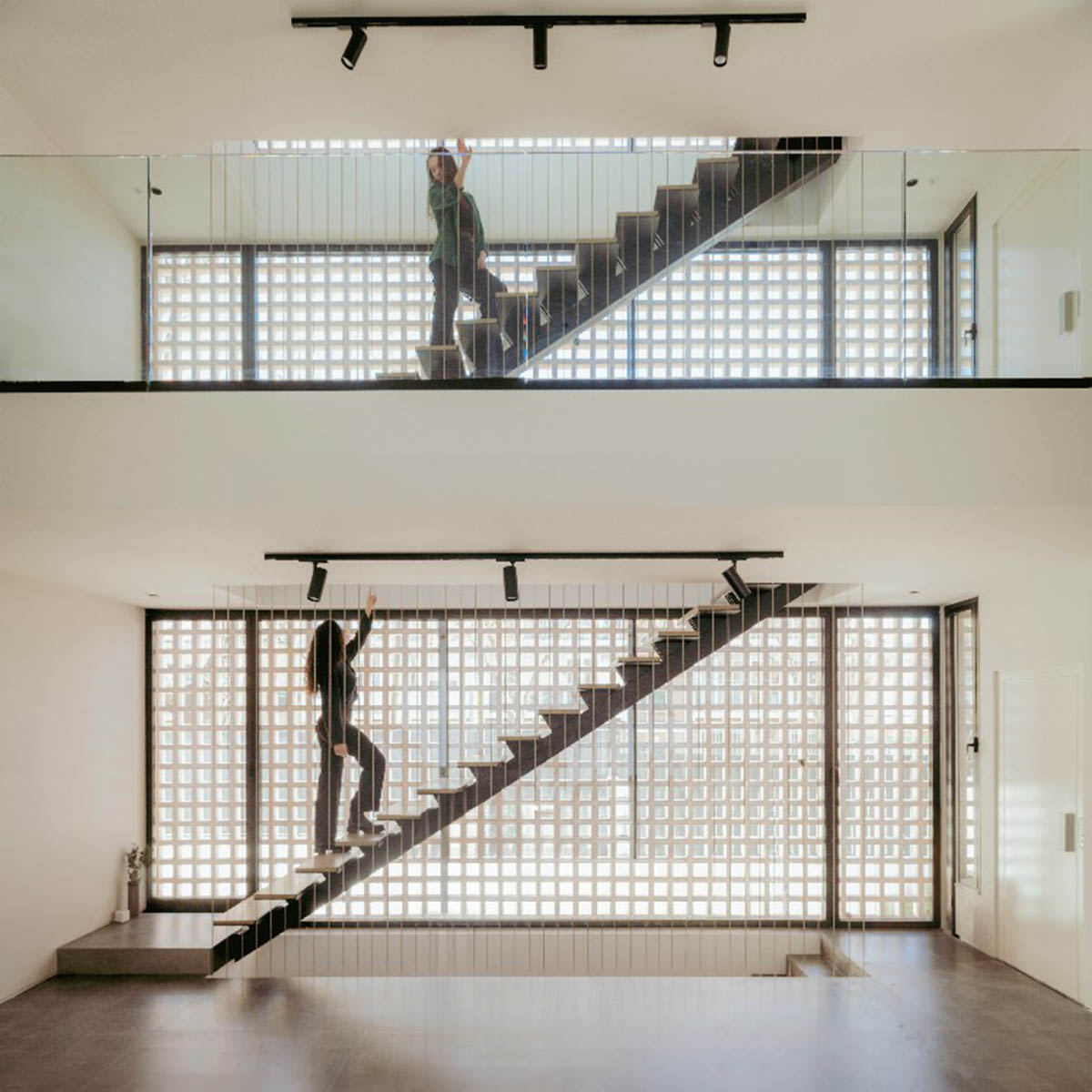
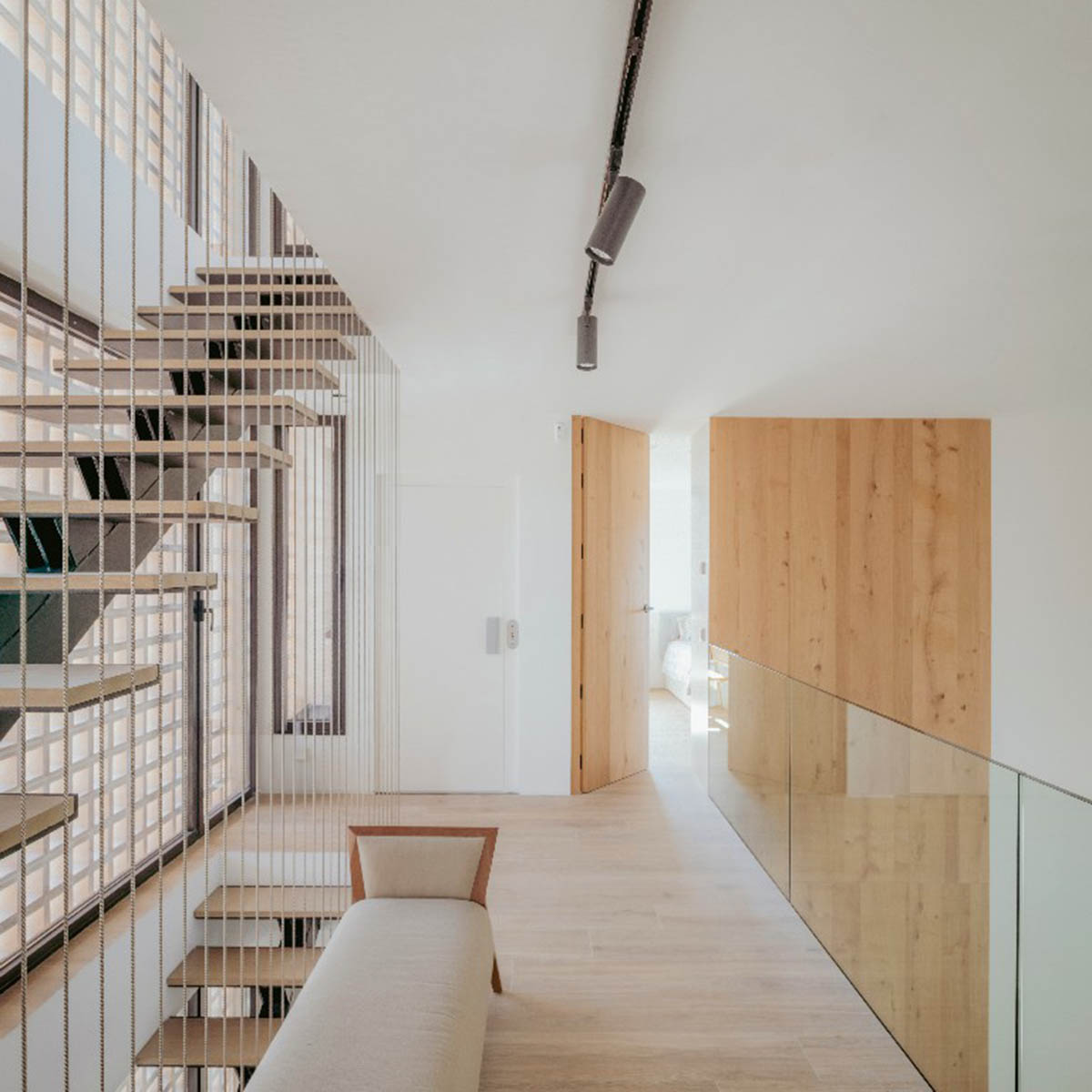
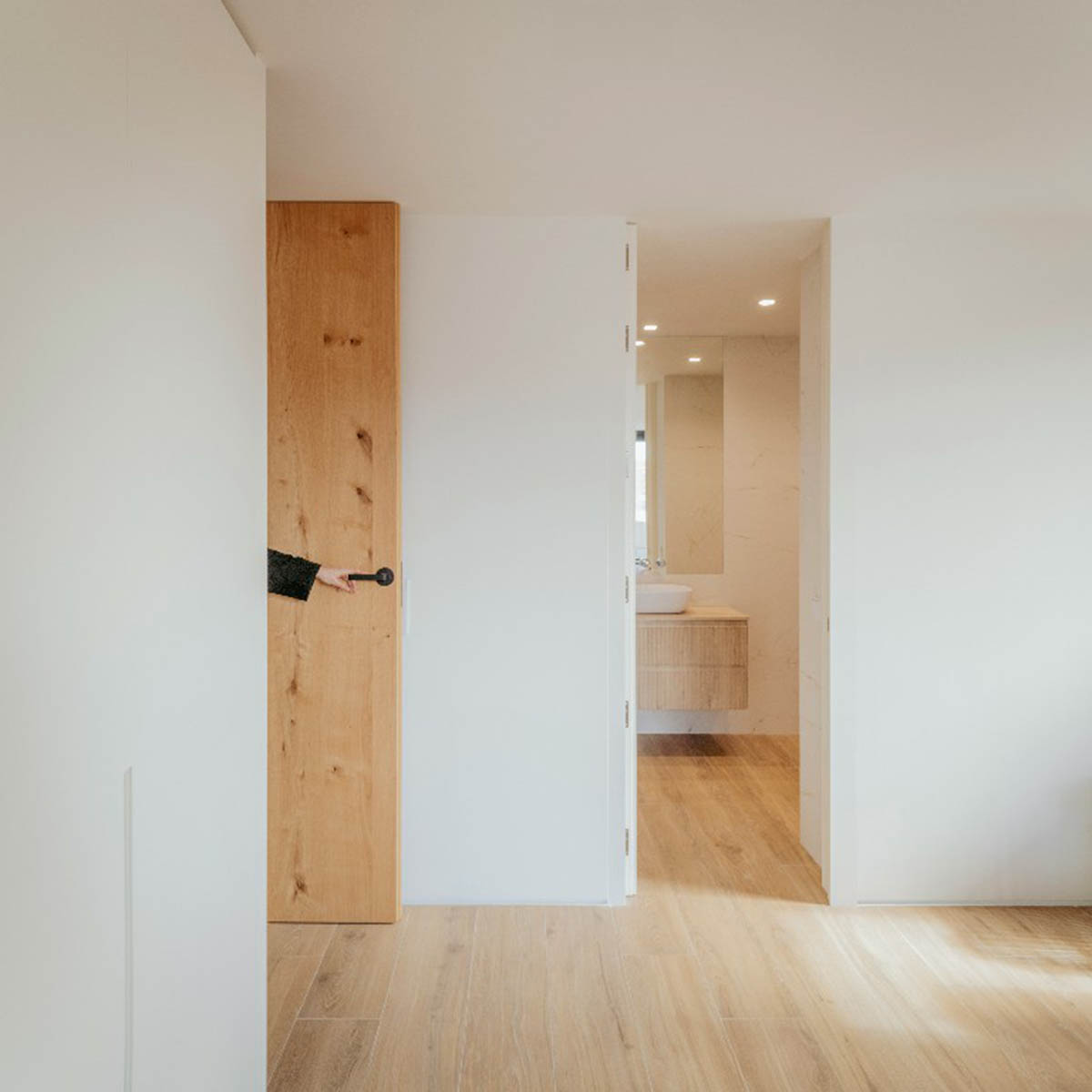
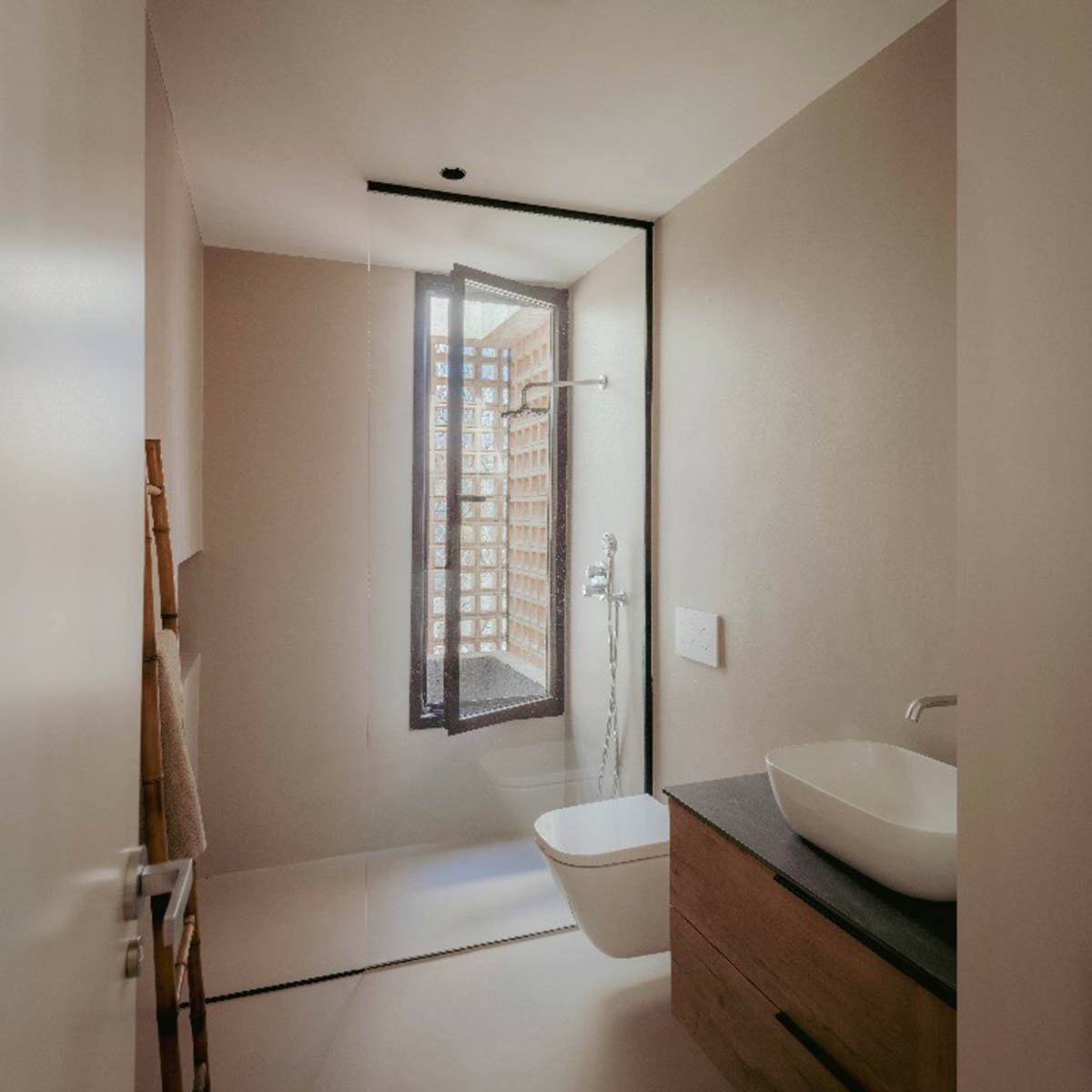
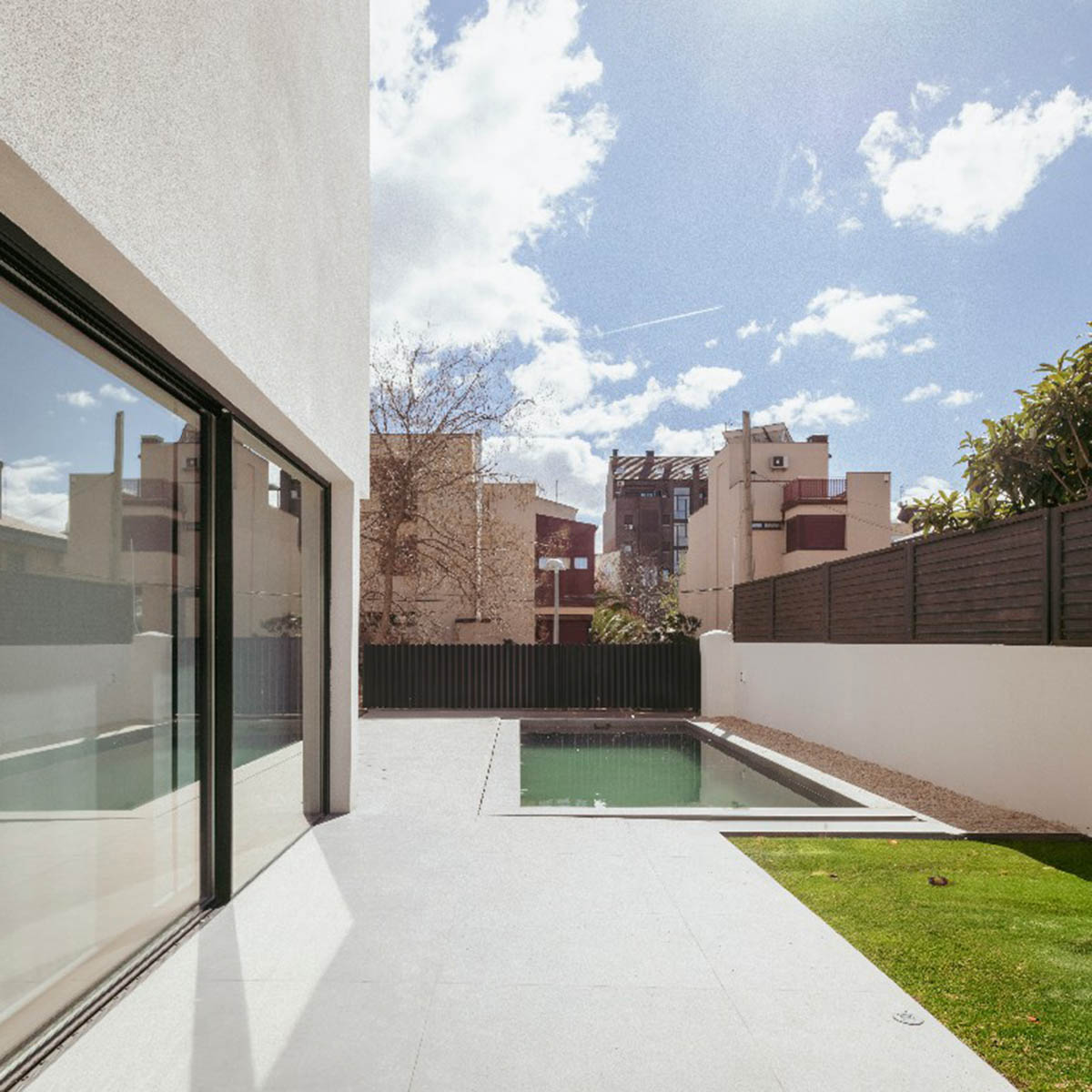
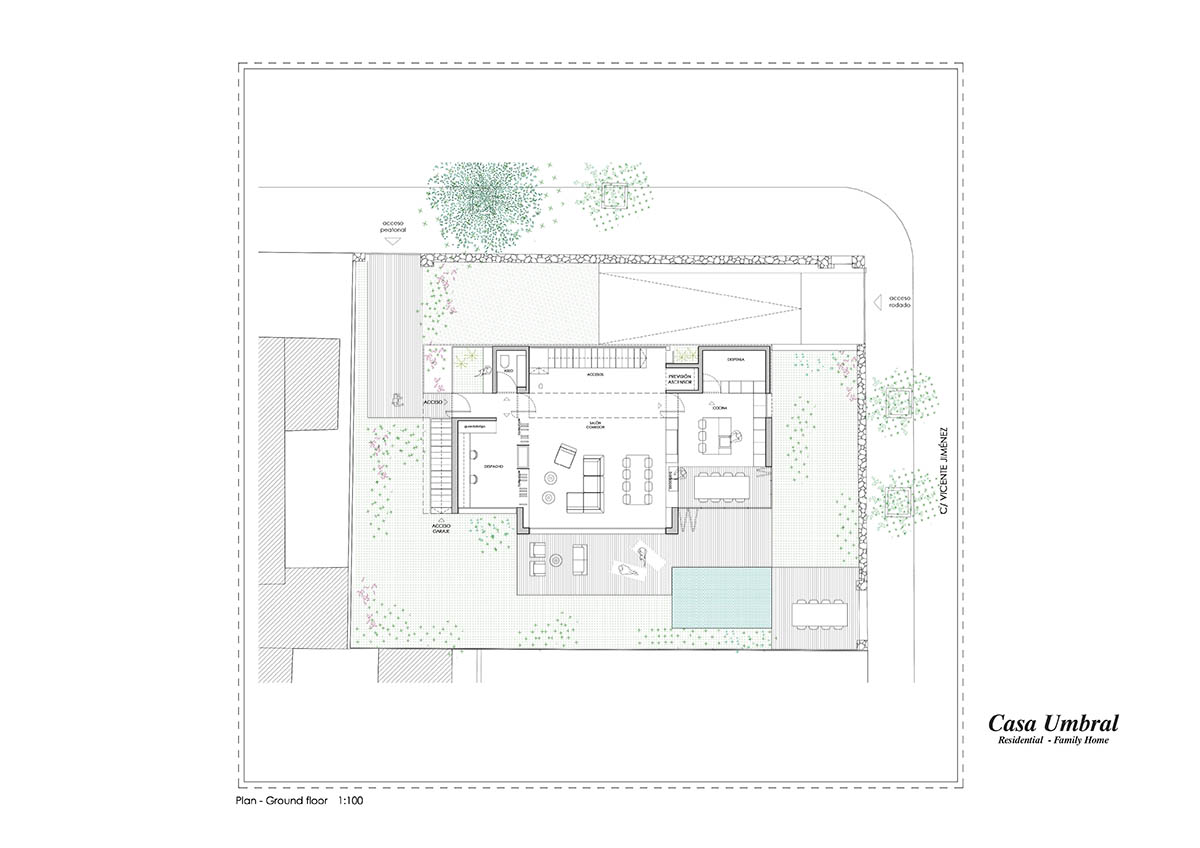
Ground floor plan
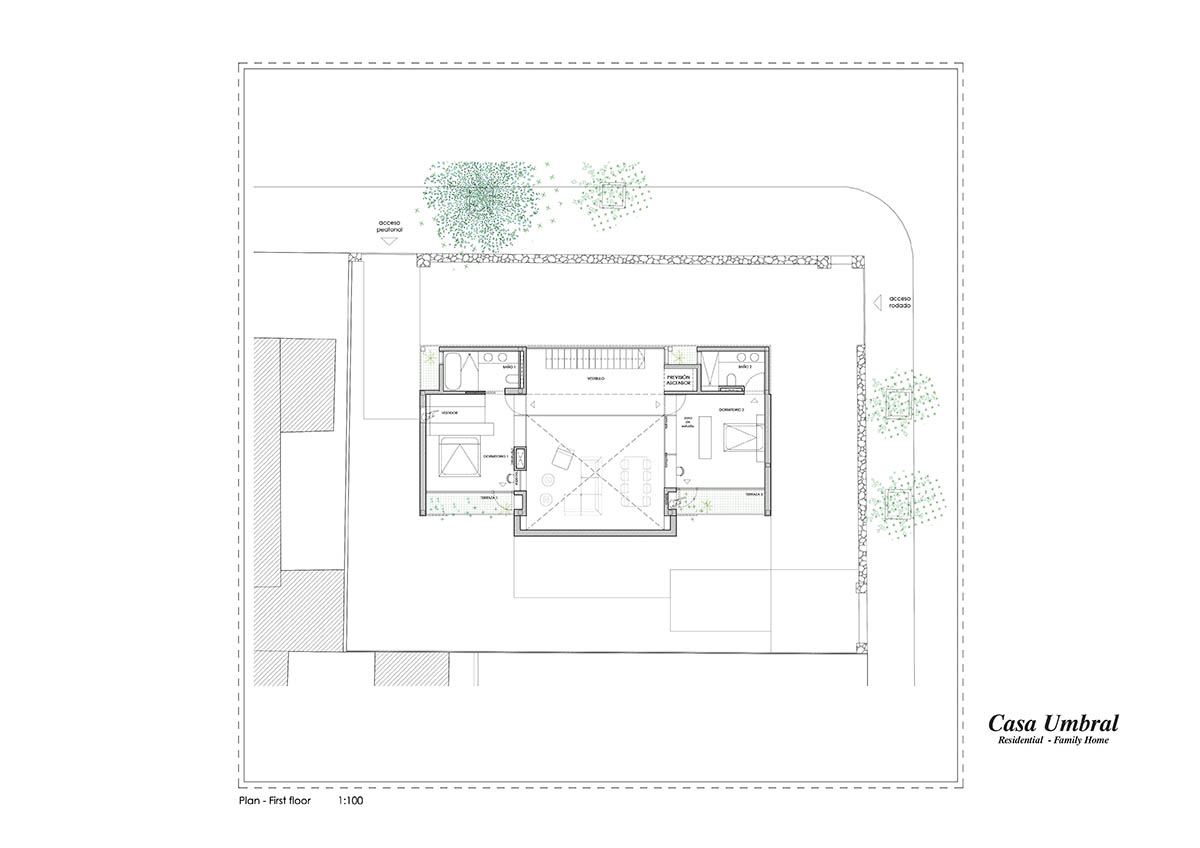
First floor plan
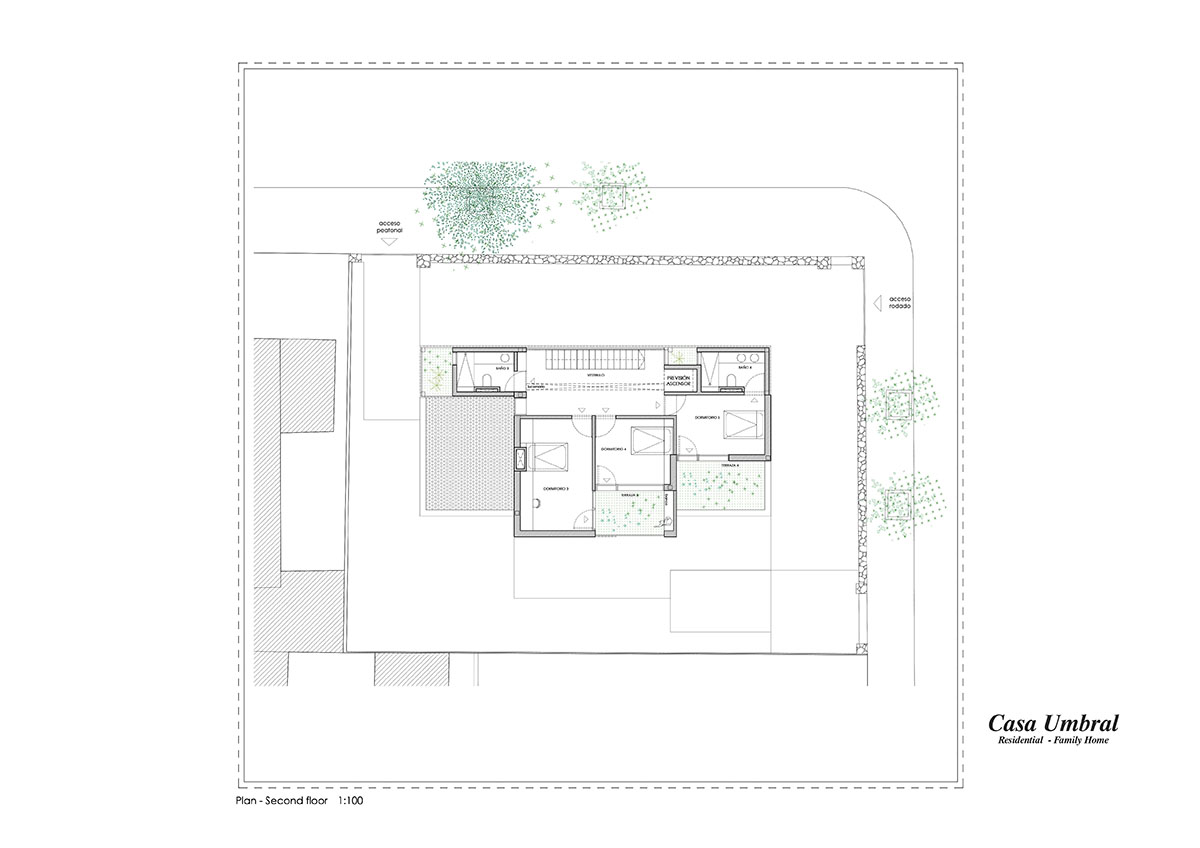
Second floor plan
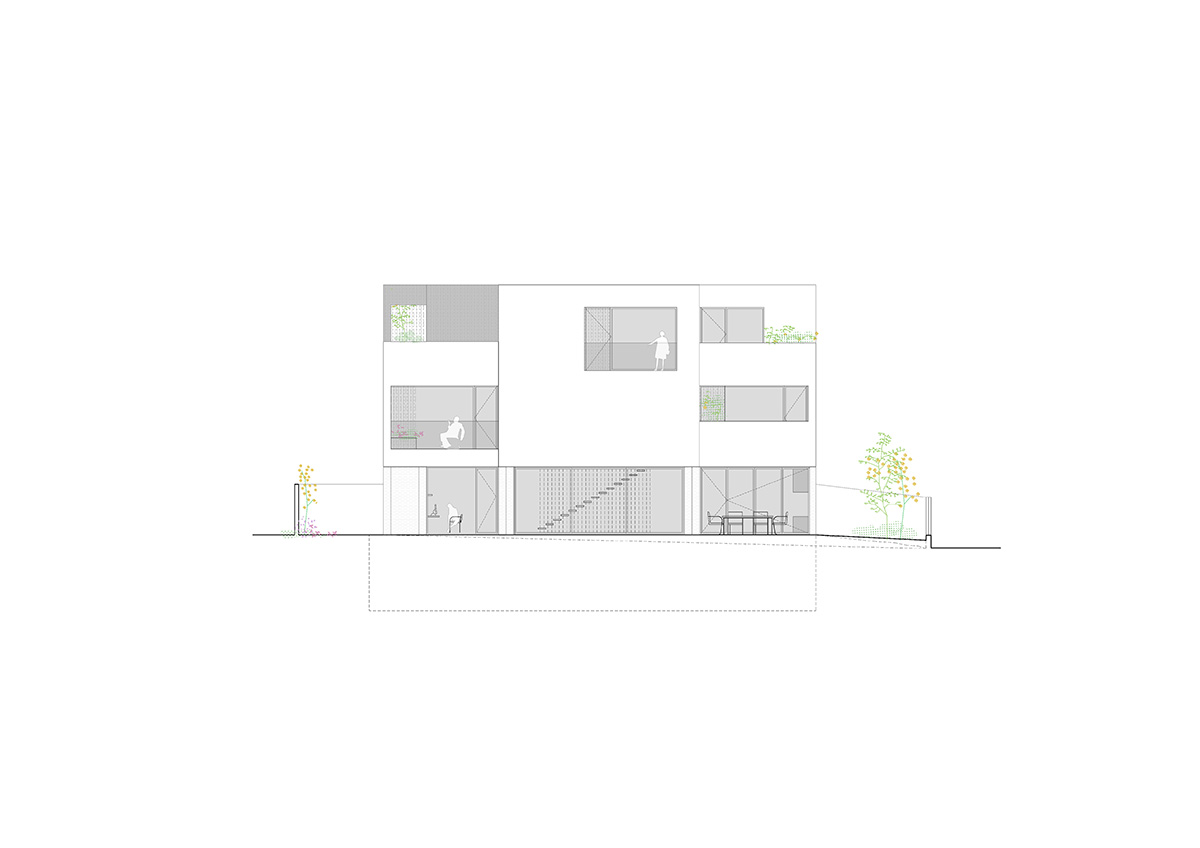
Elevation
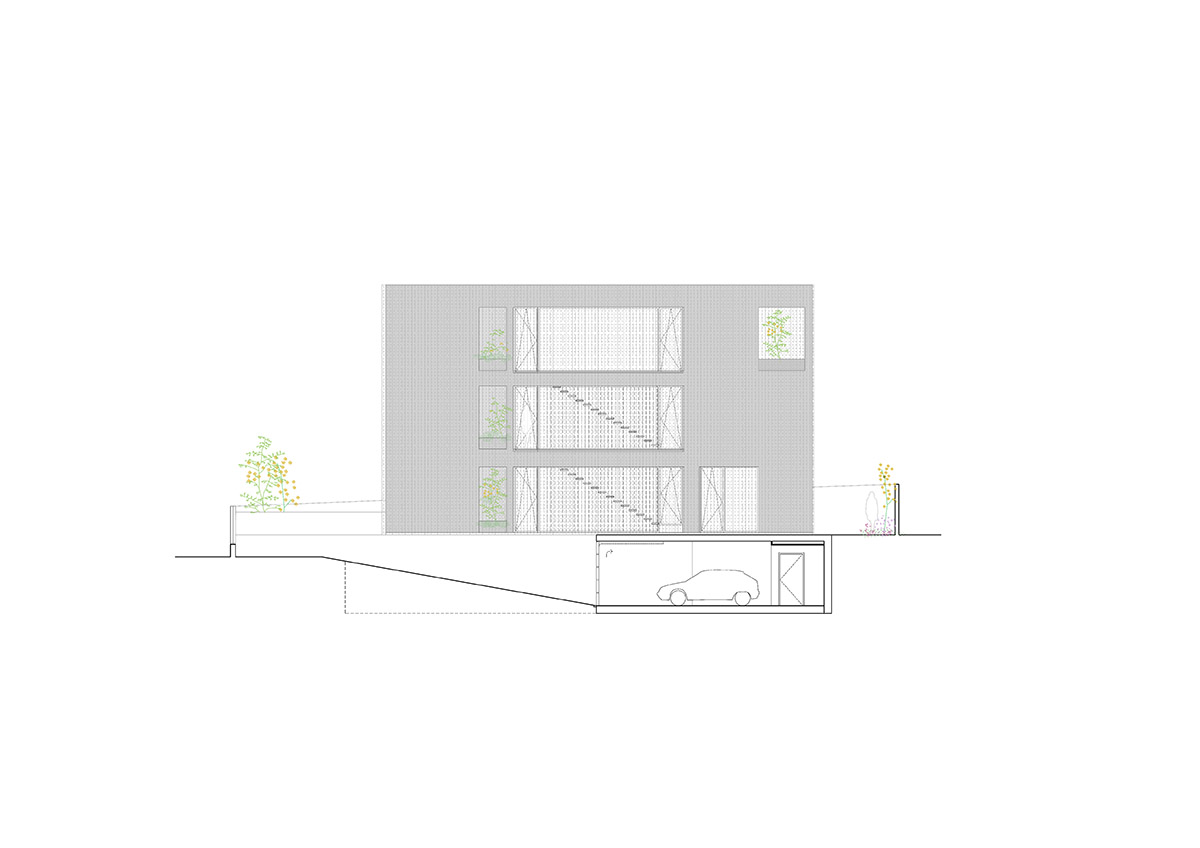
Elevation
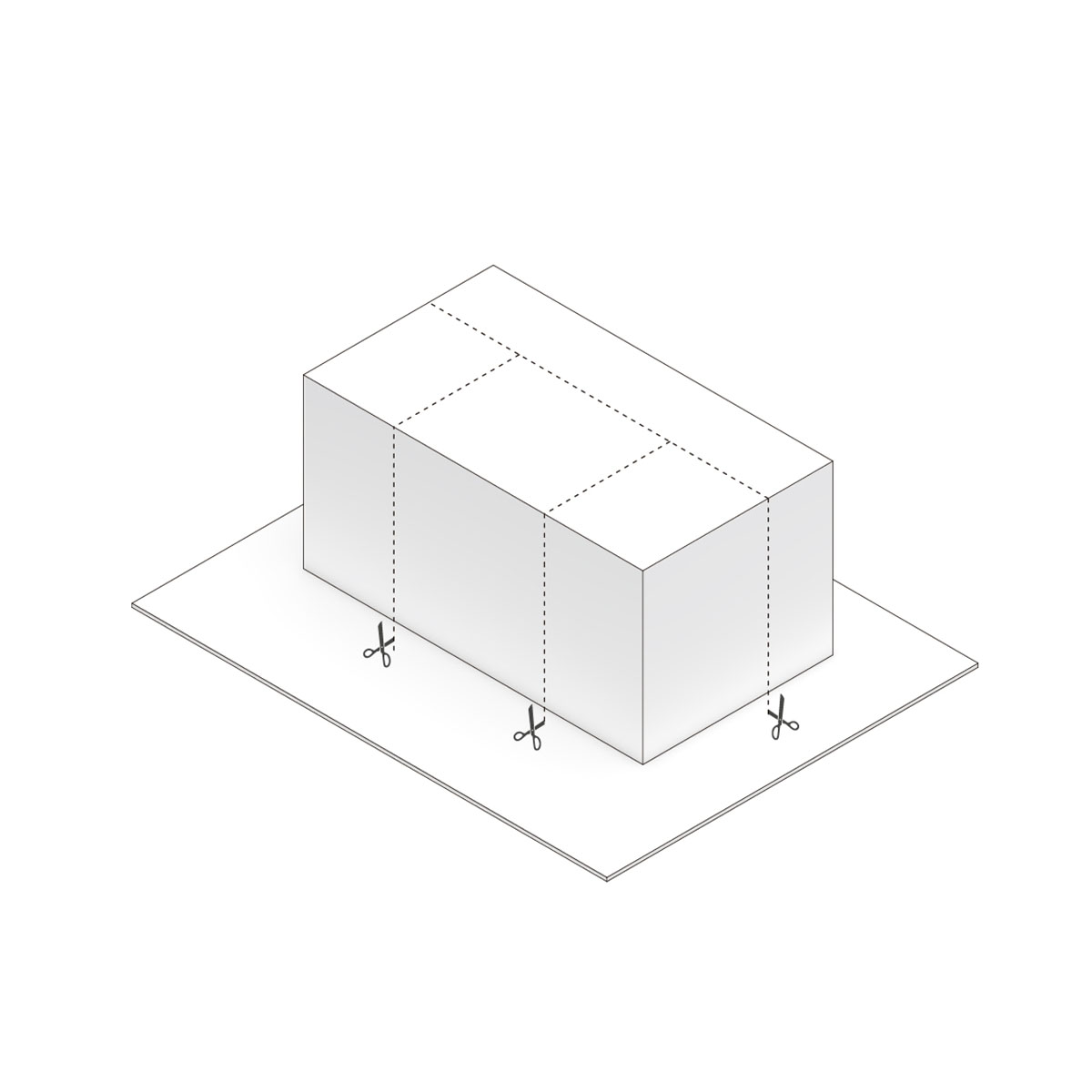
Mass diagram
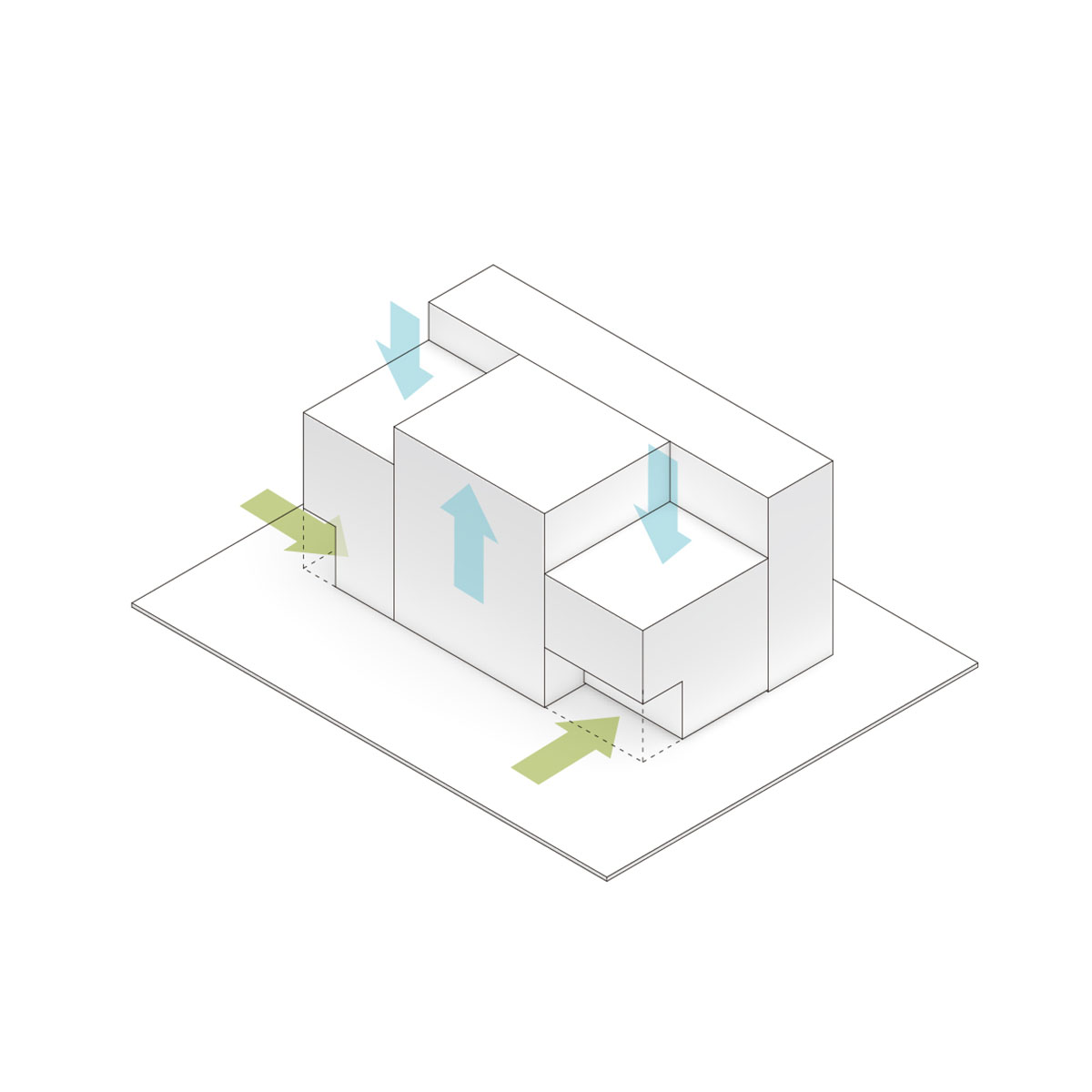
Mass diagram-2
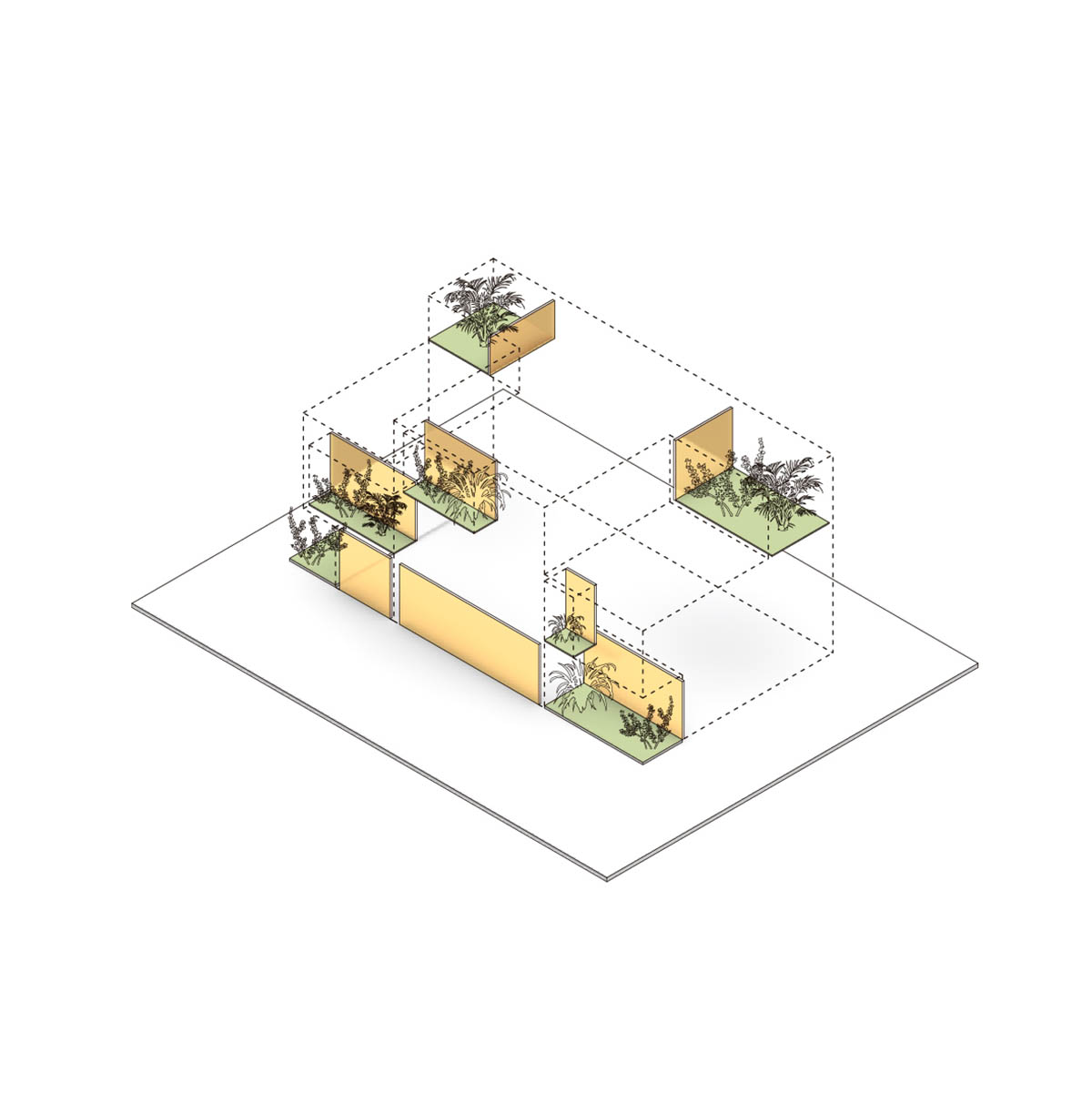
Mass diagram-3
ARQUID is an international firm based in Madrid that specializes in managing and designing both small and large projects across various sectors.
Project facts
Project name: Casa Umbral
Location: Madrid, Spain
Developer/Client: Private
Design Architect: ARQUID
Construction Company: COGSL (Construcciones Olias Gómez SL)
Carpentry: Care
Ceramic facade: Ferrés
Window carpentry: Itesal
Total surface of the house: 768.61 m² on a plot of 479 m².
Completion year: 2024
All images © Alberto Amores.
All drawings © ARQUID.
> via ARQUID
